Life
Sign up for our newsletter
We summarize the week's scientific breakthroughs every Thursday.
-
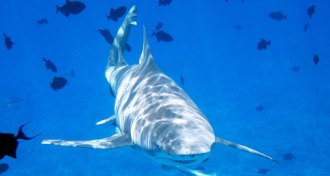 Paleontology
PaleontologyFossil teeth show how a mass extinction scrambled shark evolution
The dinosaur-destroying mass extinction event didn’t wipe out sharks, but it did change their fate.
-
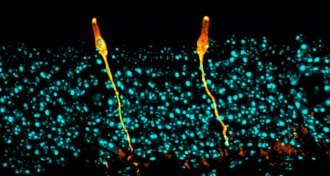 Health & Medicine
Health & MedicineNewfound airway cells may breathe life into tackling cystic fibrosis
A newly discovered cell in the lining of the airways is the primary site of activity for the gene that, when defective, causes cystic fibrosis.
-
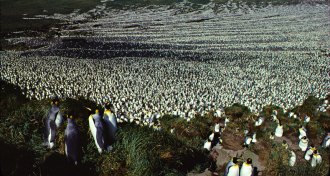 Animals
AnimalsWith one island’s losses, the king penguin species shrinks by a third
Once home to the largest known colony of king penguins, Île aux Cochons has lost most of its birds for unknown reason.
By Susan Milius -
 Neuroscience
NeuroscienceSoccer headers may hurt women’s brains more than men’s
Women sustain more damage from heading soccer balls than men, a brain scan study suggests.
-
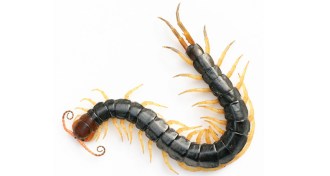 Health & Medicine
Health & MedicineA medical mystery reveals a new host for the rat lungworm parasite
Doctors report that A. cantonensis was transmitted to two people who ate raw centipedes, but you can get it from other creatures as well.
-
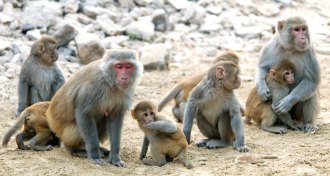 Neuroscience
NeuroscienceAnxiety in monkeys is linked to hereditary brain traits
A key brain connection may be behind childhood anxiety, brain scans of monkeys suggest.
-
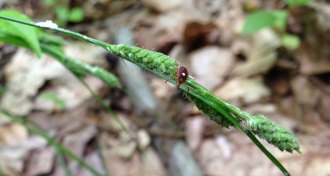 Health & Medicine
Health & MedicineThis tick may play a part in gumming up your arteries
Having antibodies to a sugar tied to red-meat allergy is associated with more plaque in the artery walls, a small study shows.
-
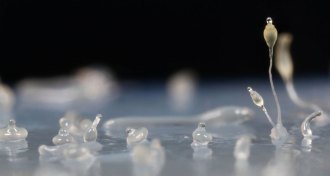 Microbes
MicrobesHow a slime mold near death packs bacteria to feed the next generation
Social amoebas that farm bacteria for food use proteins to preserve the crop for their offspring.
By Susan Milius -
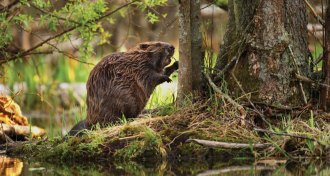 Animals
AnimalsGot an environmental problem? Beavers could be the solution
A new book shows how important beavers have been in the past — and how they could improve the landscape of the future.
-
 Genetics
GeneticsMost Americans think it’s OK to tweak a baby’s genes to prevent disease
Americans generally favor tweaking a baby’s genes to reduce the chance of getting a disease, but think boosting intelligence is a step too far.
-
 Genetics
GeneticsHere’s why wounds heal faster in the mouth than in other skin
Wounds in the mouth heal speedily thanks to some master regulators of immune reactions.
-
 Health & Medicine
Health & MedicineLowering blood pressure may help the brain
Aggressively treating high blood pressure had a modest positive effect on the development of an early form of memory loss.